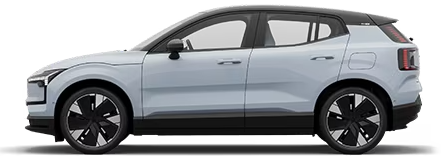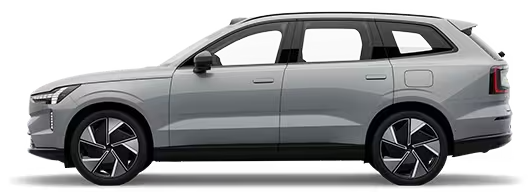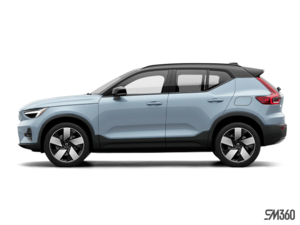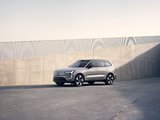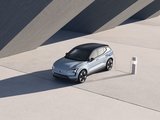Going Electric with Volvo: Your Complete Guide to EV Ownership in 2025
June 23 2025,
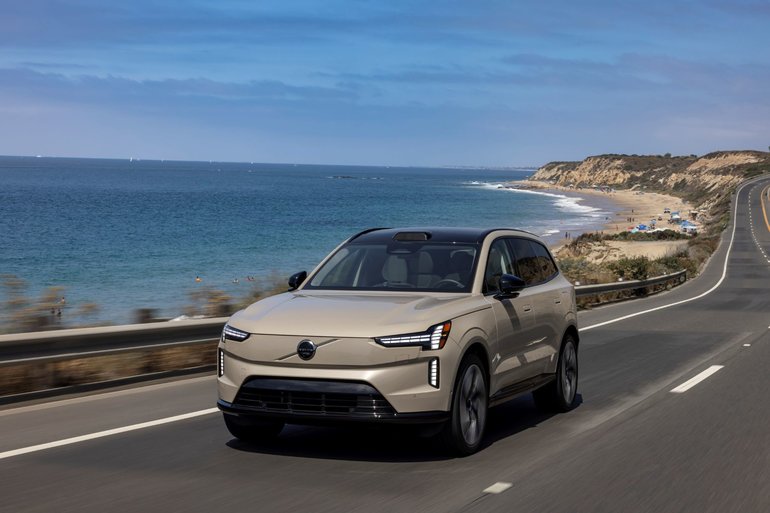
Electric vehicles have moved from concept to reality, and Volvo leads this transformation with three distinct electric models designed for Canadian drivers. Whether you're curious about your first EV or ready to make the switch, understanding the basics helps you make an informed decision.
Electric driving offers immediate benefits like silent operation, instant acceleration, and zero local emissions. But successful EV ownership depends on matching the right vehicle to your driving patterns, charging options, and lifestyle needs.
Understanding Volvo's Electric Lineup
Volvo's 2025 electric portfolio covers different sizes and capabilities, ensuring there's an option for various Canadian lifestyles.
The EX30 serves as Volvo's compact electric SUV, available in Single Motor Extended Range (268 hp, 414 km range) and Twin Motor Performance (422 hp, 402 km range) configurations. Its smaller size suits urban driving and tight parking while maintaining SUV practicality.
The EX40 bridges compact and mid-size categories with Single Motor Extended Range (248 hp, 476 km range) and Twin Motor (402 hp, 418 km range) options. This crossover design provides more cargo space while remaining manageable for city use.
The flagship EX90 delivers three-row luxury with Twin Motor Performance generating 510 hp and up to 495 km range. This full-size SUV handles large families and substantial cargo needs without compromising electric efficiency.
Charging: The Heart of EV Ownership
Successful electric vehicle ownership revolves around understanding and planning your charging strategy.
Home Charging provides the most convenient option for daily use. Level 2 charging (240V) can fully charge most Volvo EVs overnight. The EX30's 65 kWh battery charges in 11 hours, while the larger EX90's 107 kWh battery requires 15 hours for complete charging using standard home equipment.
Public DC Fast Charging enables longer trips and quick top-ups. Volvo's EVs support charging speeds up to 250 kW on the EX90, 200 kW on the EX40, and 153 kW on the EX30. These speeds can add significant range in 20-30 minutes during travel stops.
Workplace Charging increasingly supplements home charging for drivers whose employers provide charging facilities. This option extends your effective daily range without requiring public charging stops.
Range Planning and Real-World Considerations

Electric range varies based on weather, driving style, and vehicle load—understanding these factors helps set realistic expectations.
Canadian winters reduce electric range by 15-25% due to battery chemistry and cabin heating demands. Summer air conditioning has less impact, typically reducing range by 5-10%. Highway driving at sustained speeds consumes more energy than city driving, where regenerative braking recovers energy.
Real-world range planning should consider 80% of EPA-rated range for conservative trip planning. This accounts for charging to 80% (recommended for battery longevity) and provides buffer for unexpected detours or weather conditions.
|
Model |
EPA Range |
Conservative Planning Range |
|---|---|---|
|
EX30 Single Motor |
414 km |
330 km |
|
EX40 Single Motor |
476 km |
380 km |
|
EX90 Twin Motor |
495 km |
395 km |
Cost Considerations
Electric vehicle ownership involves different cost structures compared to gasoline vehicles.
Electricity costs significantly less than gasoline per kilometre travelled. Ontario electricity rates vary by time of use, providing opportunities for savings when charging during off-peak hours at home.
Maintenance requirements decrease with electric powertrains. No oil changes, spark plugs, or transmission service reduces ongoing costs. Brake pads last longer due to regenerative braking, though tire replacement may occur sooner due to instant torque delivery.
Making the Transition
Start your electric journey by evaluating your current driving patterns. Track daily distances, identify regular destinations, and note overnight parking arrangements. Most Canadian drivers cover less than 100 km daily, well within any Volvo EV's capability.
Consider installing home charging before delivery if you have dedicated parking. Professional installation ensures proper electrical capacity and safety compliance. Many utility companies offer rebates for home charging equipment installation.
Plan your first longer trips using charging network apps like Electrify Canada, ChargePoint, or FLO. Familiarizing yourself with charging locations builds confidence for extended travel.
Discover which Volvo electric vehicle suits your lifestyle—schedule test drives at Volvo Cars Villa to experience the difference electric driving makes.



